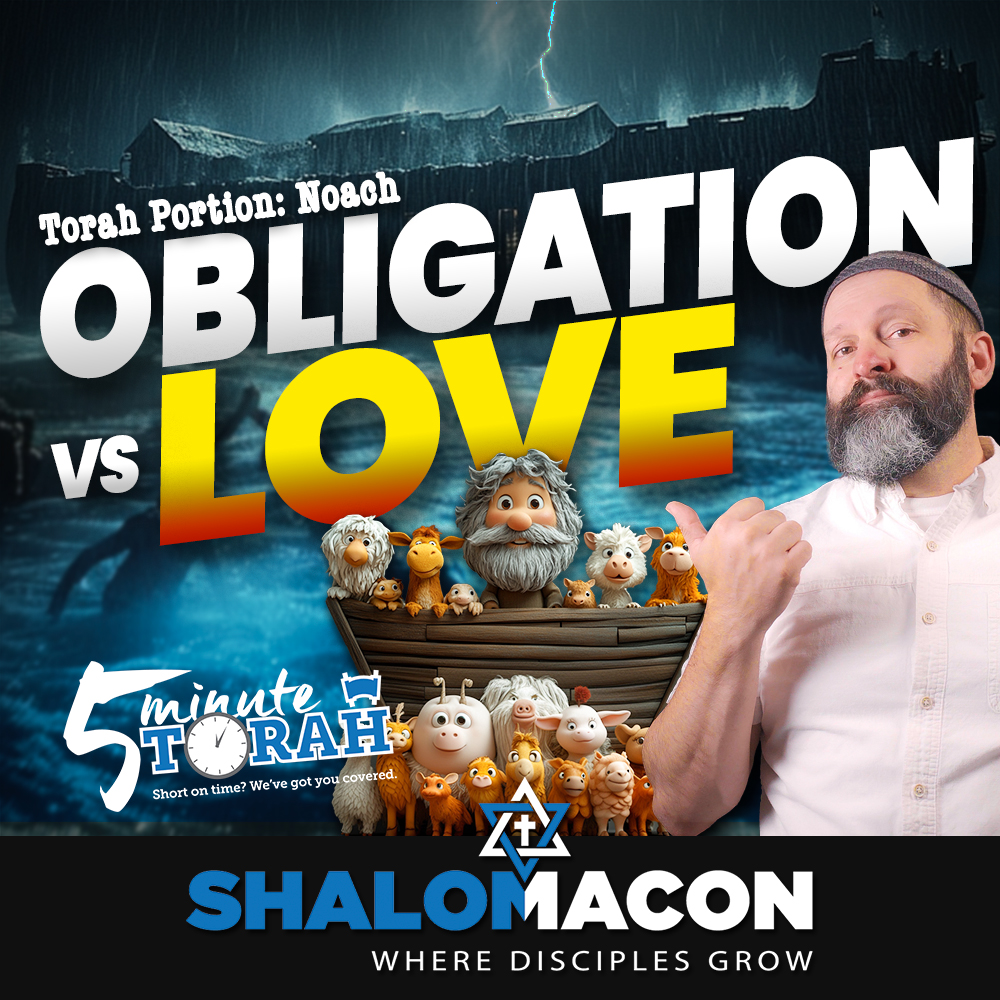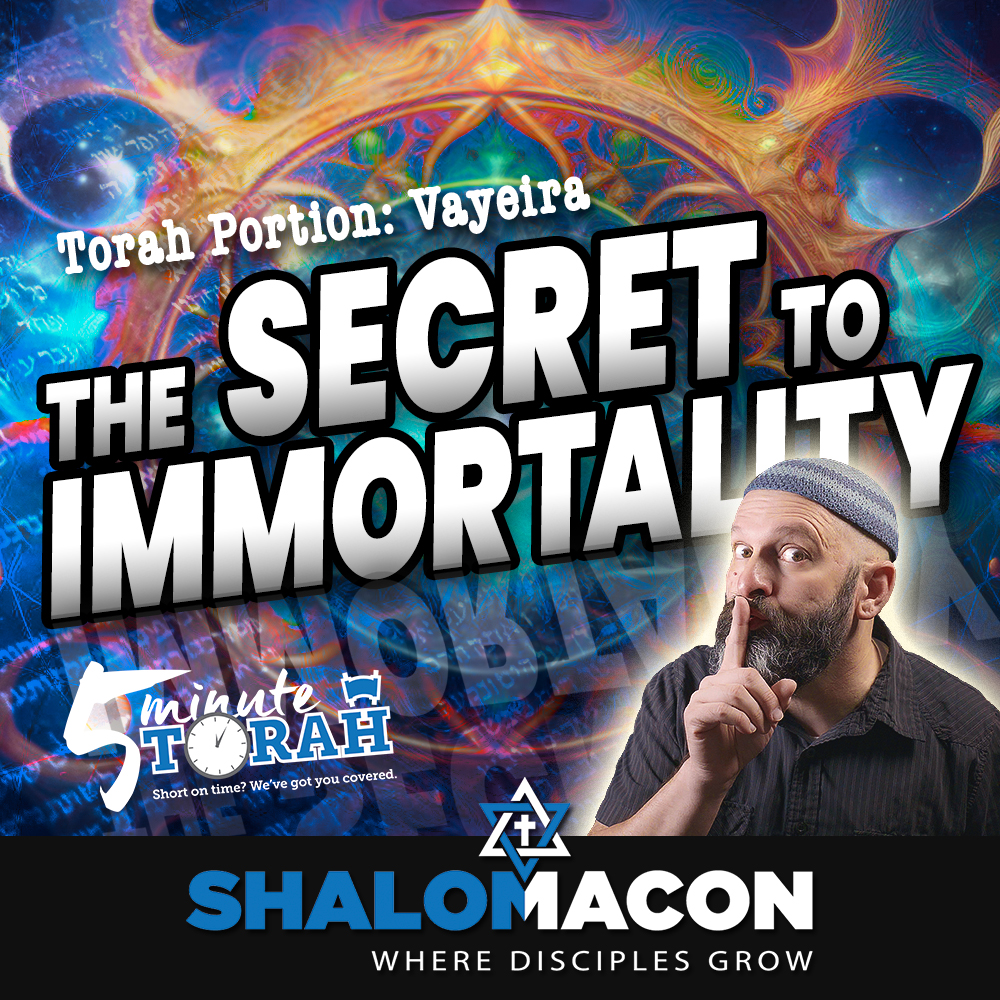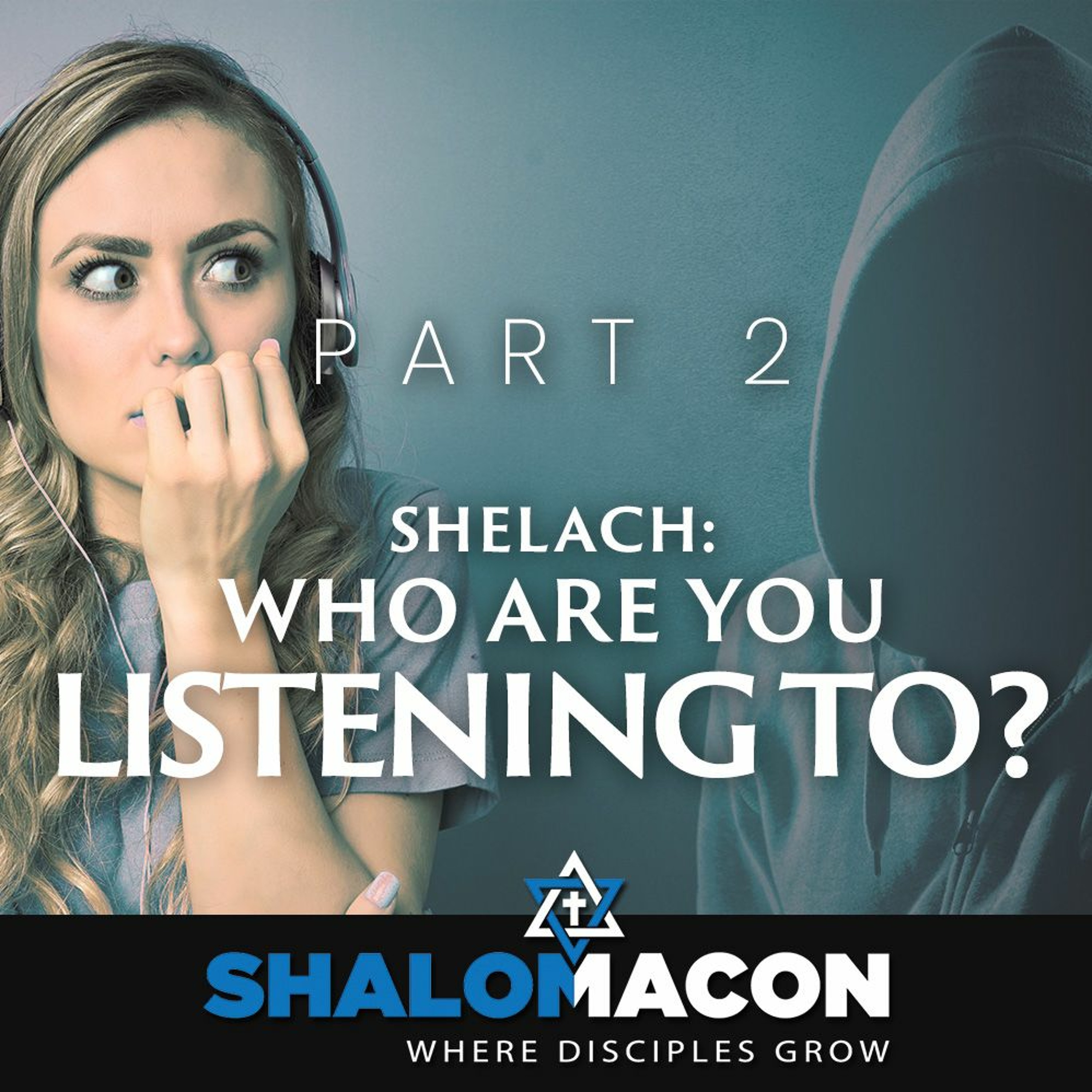Episode Transcript
[00:00:00] Speaker A: What's the difference between Abraham and Noah? Most people couldn't tell you. In Rabbinic literature, however, there is a marked difference between the two. One is called by God into an ark to separate his family from the wickedness of the world, and the other is called out of the idolatrous practices of Ur to lead his family in monotheism. But what's going on behind the scenes and what lessons can we learn from these two pioneers of our faith? In order to find out, please join me for this week's five minute Shalom. And welcome back. I'm Darren and I'm excited to be with you again for another video on the weekly Torah portion. Before I get into my five minute Torah commentary, welcome to a new Torah cycle. We've been wrapping up the Book of Deuteronomy and now we've finally done it and rolled back the scroll to the Book of Genesis. Unfortunately, the festivals threw off my shooting and editing schedule, so we missed the first tour portion. However, we're starting the new cycle fresh and strong and you don't want to miss a single episode of this year's 5 Minute Torah series. This week we're studying the portion of Noah, Genesis 6, 9, 11, 32 and here are the three things you need to know about it. Number one the Mabul waters of the flood. Just six chapters into the book and humanity has sunk into the lowest of lows. So much so that God wants to wipe the slate clean and start over with just a single family. So he chose Noah and his family for that task. He let Noah know of his plan to destroy the world through a flood and told him to make a tevah an ark to preserve the lives of his family members as well as the animal kingdom. Once they were inside the ark, God closes the door and the rain beats down for 40 days, destroying all other life outside the ark. Number two Noah's basic universal guidelines. After Noah and his family exit the ark, God makes a covenant with him. He then adds additional terminology that has been traditionally interpreted as the seven categories of Noahide laws that are incumbent upon all humanity. These Categories include Number 1 Do not worship idols. Number 2 Do not curse God. Number 3 Do not murder. Number 4 Do not commit sexual immorality. Number 5 Do not steal. Number 6 Do not eat the limb of a living animal and number seven establish courts of law to enforce justice in the world. Although these are not the only laws of the Torah that can be observed by non Jews, they are definitely the starting point and the foundation for a moral and ethical society and Number three Migdal Bavel the Tower of Defiance Toward the end of our Torah portion, we read about the account of the Tower of Babel. As we know, at that time the people of the world all spoke a common language and used this to their advantage in an attempt to build a ziggurat into the heavens in defiance of their Creator. God thwarted their plans by dividing the common language into many different languages and scattering them across the earth. And although the story seems to end on a bitter note of the people being divided, the portion ends by foreshadowing a time when G D would raise up a people that would be his own and walk in his ways through the birth of a man named Avram. You've made it to the new Torah cycle. Congratulations. Now all you need to do is grab a copy of one of my five Minute Torah commentaries. With three volumes to choose from, you can't go wrong. Help promote Messianic Judaism and Shalom Makan by picking up your own copy and sharing it with your family and friends. Once they see the depth and beauty of the Torah from a Messianic Jewish perspective, you might end up with a new study partner. Grab your copy today using the link in the description below this video this week's Torah commentary is called Love versus Obligation and it comes from my book 5 Minute Torah Volume 3. The beginning of our Torah portion reads, these are the generations of Noah. Noah was a righteous man, blameless in his generation. Noah walked with God. This is Genesis 6:9. From this text, the character of Noah seems obvious. He was righteous, blameless, and had a close relationship with the Lord. However, our sages debate this idea. Some interpret this to mean that since he was blameless in his generation, if he would have lived in a righteous generation, his righteousness would have been even greater. Some, however, claim that Noah was only blameless in his generation because he lived in a wicked generation. They believed that if he had lived in a generation that was righteous, then his righteousness would not have stood out. For instance, if he had lived in the days of Abraham, then he would not have been noteworthy at all. One reason that some of our sages did not consider Noah to be as righteous as Abraham is that from the account of the Torah, it doesn't seem that he was concerned with the people of his generation. Although he spent over a hundred years building the ark, he didn't take a single soul into the ark with him outside of his immediate family. Did he not tell the people of his generation what was going to happen and why it was going to happen? Did he not call on a single soul to repent? Did he not invite them to join them so that they would be saved from destruction? From the Torah's account, this doesn't appear to be the case. Noah seems to have kept to himself while he built the ark for over 100 years. Once the rain began, he and his family boarded the ark along with the animals and with a callous heart said goodbye and good riddance to the rest of the human population. This image of Noah can be compared with the prophet Jonah. When Jonah was called to Nineveh, he went in the opposite direction. Was it because he was afraid of the people? After all, the Ninevites were known for their cruelty and the way they tortured the enemies by literally skinning them alive. No, Jonah wasn't afraid of the Ninevites, he simply hated them. He knew that if he called them to repentance, they would actually do it and thus be spared of God's wrath. Was this also the case with Noah? Did Noah feel the people of his generation were receiving their just dues? Is this why Noah didn't try to persuade anyone to repent and be saved from destruction? Did he simply despise his generation and seek an escape? If this is the case, how do we reconcile this description of Noah with the apostolic description of him? The Apostle Peter says that Noah was a preacher of righteousness from 2nd Peter 2. 5, implying that he was indeed concerned about his generation and warned them of the impending doom. Peter seems to have put Noah on a pedestal, whereas some of our sages view Noah as suspect. Which is it? Was Noah righteous in his own merit or simply righteous compared to the wickedness around him? Did Noah warn his generation and call on them to repent or not? The Lubavitcher Rebbe actually brings these two thoughts together and reconciles the difference between them. He says that although Noah did call on his generation to repent, he did not back this up with prayer for his generation. This is why our sages compare Noah to Abraham. Abraham pleaded with God to spare the wicked of his generation, bargaining with the Almighty until he felt he had reached a satisfactory agreement that would surely spare those of Sodom and Gomorrah. Although Noah preached a message of repentance, he did not beg Hashem for mercy on behalf of his generation. It seems that Abraham called people to repentance out of a genuine concern for their well being. While Noah's message of repentance may have been merely out of obligation, the fruit of their actions is telling. Whereas Abraham made disciples, Noah entered the Ark alone. I would go a step further and say that Noah did not do well at building relationships either. This would explain why only his family entered the Ark. Discipleship is almost entirely built on relationships. We must heed the words of our Master and make disciples of all nations. We cannot reach our generation with short term mission trips and theological persuasion. We must care for our generation. We must become a disciple of Aaron, a lover of peace, a pursuer of peace, and one who loves the creatures and draws them close to the Torah. As it says in AVOT 1:12, Love is the key to disciple making. When we love someone, we'll make time for them and invest in them. Yes, we have a duty to make disciples, but when duty is our only motivation for investing in others, there's a problem. We may feel good about ourselves, but in the end the fruit will be lacking. Yeshua invested in his disciples out of love and the world has been turned upside down because of it. Will you give this love out to others as well? Who will you invest in and how? Are you praying for the people around you and for opportunities to invest in their lives to make disciples like Abraham and Yeshua? Or are you simply shouting out impending doom like Noah? If you're making disciples already, what advice can you give to others who would like to become a disciple maker? If you're not currently making disciples, what's holding you back? I would love to hear your thoughts and I'm sure others would as well. Let me hear your story in the comments below. I'll see you next week for another Messianic insight into the Eternal blessings from Shalom Macon, the place where disciples of Yeshua learn, connect and grow.
[00:08:59] Speaker B: Please Visit our website shalommacon.org to learn more about us. Join our Live Services Access other Teachings Sign up for our Newsletter Join our private network that will connect you with our greater community from around the world or contribute to the work of Shalom Macon. Thank you for watching and we look forward to connecting with.



